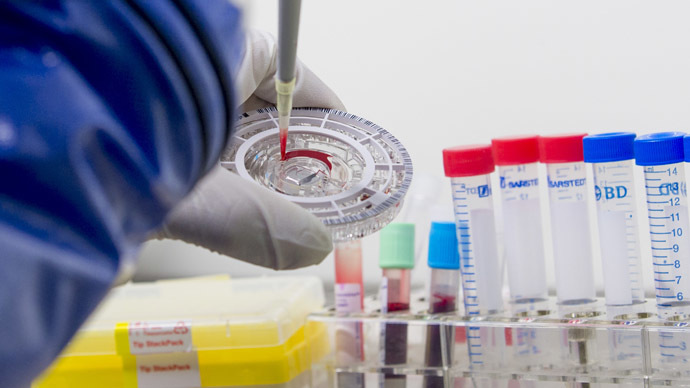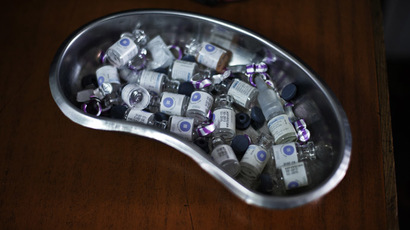Blood test could diagnose depression, predict treatment success

Scientists have discovered blood chemicals, the levels of which are higher in those suffering from depression, paving way for blood tests to diagnose the condition and even to say if one is biologically predisposed to feeling down.
In an attempt to drag depression out of the realm of mere
assumptions, scientists from Northwestern University in Chicago,
picked 32 people suffering from depression and matched them with
32 non-depressed counterparts of the same sex, age and race.
The researchers then measured levels of chemicals in the blood of
the experiment participants and discovered the depressed group
had higher levels of nine blood constituents.
Further measurements allowed researchers to single out three
genes which “could possibly mark subjects with future
recurrent depression.”
“These markers come closest to the ultimate goal of
identifying predisposition to depression, even in the absence of
a current depressive episode,” Eva Redei, who led the
research, wrote in a paper published in Translational Psychiatry.
The experiment has also revealed a difference in certain blood
patterns which could be used to tell those responding to
psychotherapy from those not.
“This is a very promising finding as to date, there are no
biomarkers or predictors of effectiveness of psychotherapy,”
Redei believes.
Depression main cause of teen illness, suicide No. 3 cause of death – WHO
The scientist acknowledges more studies with a larger number of
participants are needed to confirm the results of the research.
Redei has had a long record of studying depression, according to
the Northwestern website. In 2009 she presented results of her
experiments on rats, where she for the first time isolated blood
constituents marking depression and anxiety.
In 2012, she made public the results of an experiment in which
she took blood samples from 14 depressed and 14 non-depressed
teenagers. She discovered 11 blood markers helping to
differentiate between depressed and non-depressed adolescents.
“Right now depression is treated with a blunt
instrument,” she said back then. “It’s like treating
type-1 diabetes and type-2 diabetes exactly the same way.”
The latest research, which narrowed down the scope of blood
chemicals signaling depression, had a much wider age range: from
23 to 83.
If further validated, the study could lead to a breakthrough in
treatment of what the World Health Organization describes as the
leading cause of disability globally. It’s estimated 350 million
people worldwide suffer from depression.














